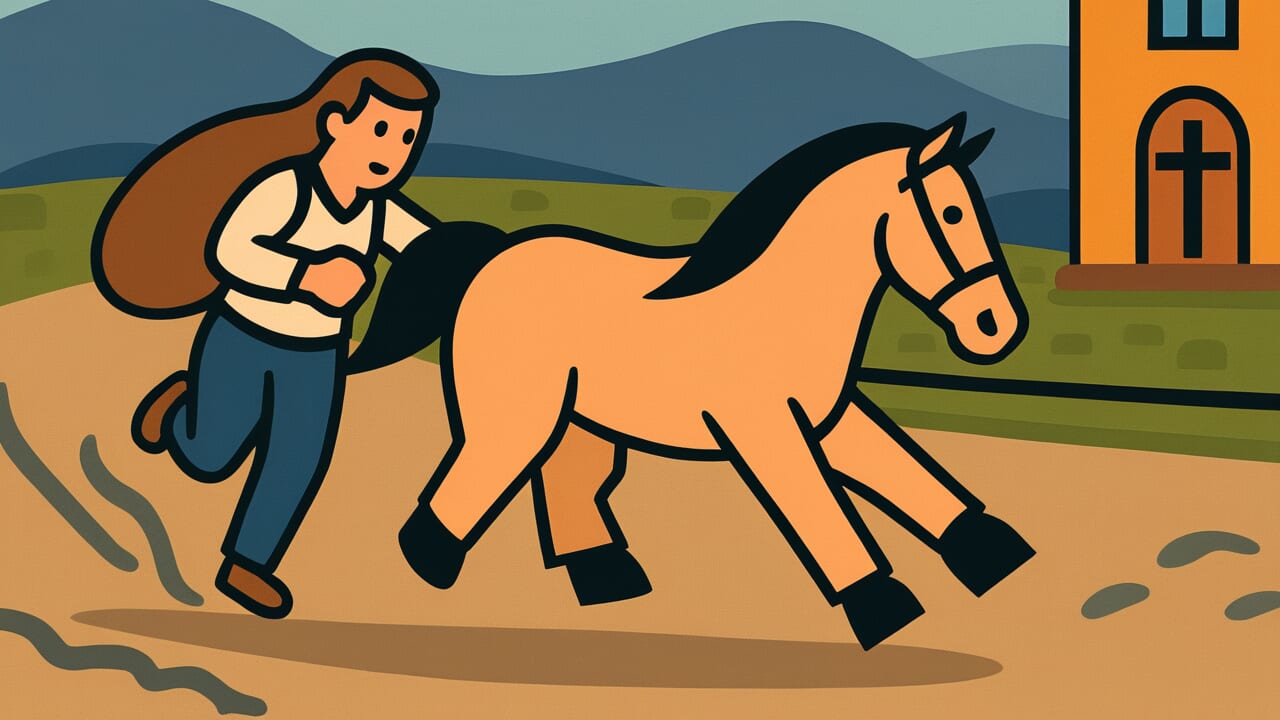How to Read “It’s not that I dared to fall behind; it’s that the horse won’t move forward”
Aete okure-taru ni arazu, uma susuma-zakereba nari
Meaning of “It’s not that I dared to fall behind; it’s that the horse won’t move forward”
This proverb means you’re falling behind not because you’re lazy. Instead, the conditions around you aren’t right.
Think of it like this: If your horse won’t move, you can’t go forward no matter how hard you try. The same goes for people trying to reach their goals.
Sometimes failing isn’t about not trying hard enough. Outside factors you can’t control might be stopping you.
You can use this saying in two ways. First, when someone is behind schedule, remind others to look at the real reasons before blaming them.
Second, use it to explain your own situation when things aren’t going well. It helps people understand you’re facing real obstacles.
Even today, this applies to work projects. When something is late, it might not be about effort or ability.
Maybe there aren’t enough resources. Maybe the system has problems. Maybe outside factors are causing trouble.
This proverb teaches us something important. Don’t judge people just by results. Look deeper to find the real cause.
Origin and Etymology
This proverb comes from classical Chinese-style writing. It grew from Japan’s warrior society and Confucian teachings.
Let’s break down the words. “Aete” means “on purpose” or “deliberately.” “Okure-taru” means “falling behind.”
“Arazu” makes it negative—”it’s not.” Then “uma susuma-zakereba nari” gives the real reason: “the horse won’t move forward.”
The saying has a logical structure. It denies one reason, then explains the true cause.
This expression comes from a time when people rode horses everywhere. Horses were the main way to travel back then.
When someone arrived late, it wasn’t always the rider’s fault. The horse might be tired or sick. The road might be bad.
No matter how much you hurried, you couldn’t move forward if the horse wouldn’t go.
This isn’t just an excuse. It shows that delays sometimes have real, objective reasons beyond your control.
Japanese society, influenced by samurai values and Confucianism, cared about responsibility. But fair judgment mattered too.
This proverb teaches wisdom. Don’t blame people based only on surface results. Look for the true cause behind what happened.
Usage Examples
- The new employee’s performance isn’t improving—It’s not that I dared to fall behind; it’s that the horse won’t move forward. The training system isn’t set up properly.
- You can’t blame him for the project delay—It’s not that I dared to fall behind; it’s that the horse won’t move forward. His budget got cut.
Universal Wisdom
This proverb has lasted because it touches a basic human problem. How do we tell the difference between results and their real causes?
People naturally want to blame someone when they see bad results. Someone’s late? They must be lazy. Someone didn’t succeed? They must lack ability.
But this quick judgment creates many misunderstandings and unfair situations.
The simple fact about the horse teaches us something deep. Some things exist that human will and effort alone cannot change.
Our ancestors understood this truth. Even talented people can’t work if their tools are broken.
Even honest people can’t make good choices without the right information. Human work always depends on something else.
Holding people responsible matters. But first, society must take responsibility for creating the right conditions and environment.
This proverb asks us: What does fairness really mean? True fairness isn’t judging people by surface appearances.
It’s trying to understand the whole situation someone faces. That’s what real fairness looks like.
When AI Hears This
Every control system follows a pattern: input, processing, and output. This proverb is interesting because it shows a clear division of work.
The human is the “processing part” and the horse is the “output part.”
Modern control theory sorts system failures into three types. Sensor failure, calculation error, or actuator problems.
This proverb points to the third type—when the part that actually does the work fails.
Control engineering has two important concepts: observability and controllability. Can you observe the state? Can you control it?
In this proverb’s situation, you can see the horse’s state but can’t control it. You can observe but not control—the most troublesome case.
For self-driving cars, this is like having working sensors but broken brakes.
The proverb also shows the limits of feedback control. The human can send commands to the horse all day.
But if the horse doesn’t respond, the whole system fails. This connects to modern AI ethics debates.
Who’s responsible when you can’t control a system? Control theory says you shouldn’t run systems with uncontrollable parts.
But in reality, perfect control is impossible. This proverb put that contradiction into words over 2,000 years ago.
Lessons for Today
This proverb teaches modern people to ask an important question before judging others. “What tools does this person have to work with?”
Say a coworker isn’t getting good results. First check some things. Is their system outdated? Do they have the information they need?
Is there a good support system in place?
This viewpoint especially matters for leaders. Before demanding results from team members, you must create an environment where results are possible.
Provide up-to-date tools. Offer proper training. Make an atmosphere where people feel comfortable asking questions.
These are the conditions that “make the horse move forward.”
This proverb also helps when you’re struggling. Don’t take all the blame on yourself. Look at your situation objectively.
If you’re missing resources, asking for help isn’t shameful. It’s smart.
This saying pushes us to change our culture. Stop focusing only on results. Start valuing process and environment instead.
Try to understand people before blaming them. That kindness and fairness is the first step toward building a better society.



Comments